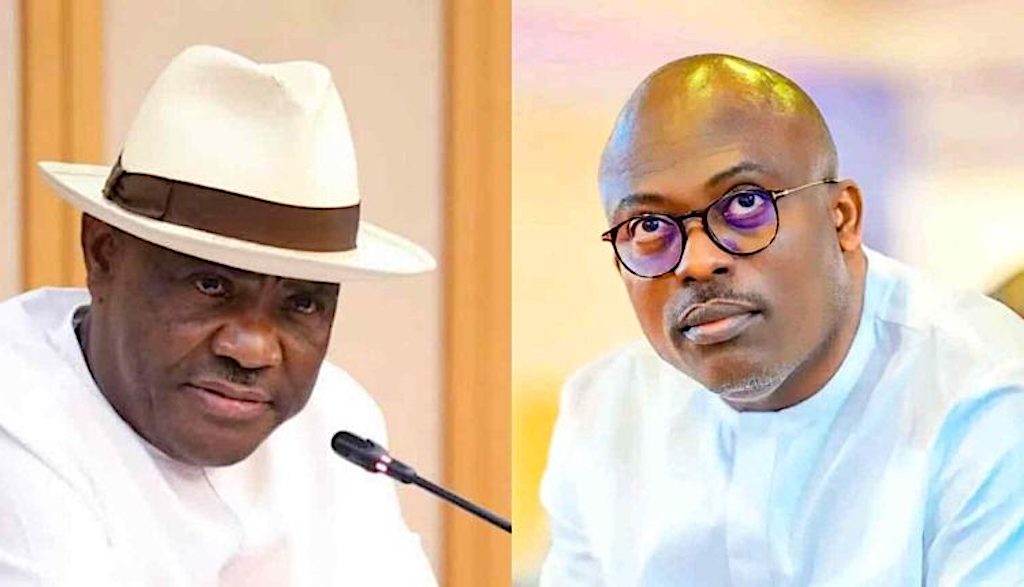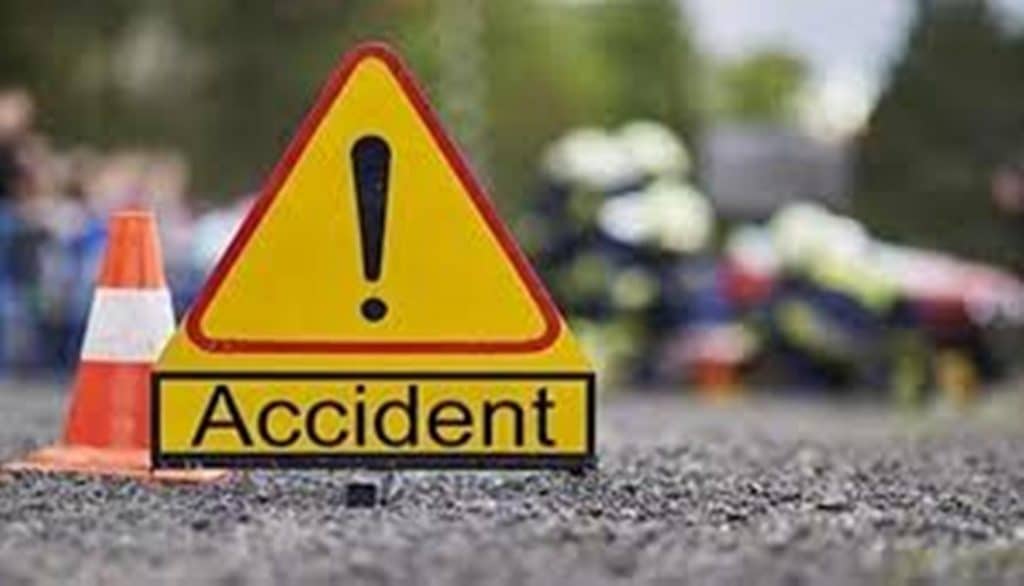Editorial
Political instability in Rivers State and what it portends

October 30, 2023 remains a sad commentary in the history of Rivers State. This fateful day was the day a handful of lawmakers in the Rivers State House of Assembly, believed to be loyal to the Federal Capital Territory (FCT) Minister and former Governor of the State, Nyesom Wike attempted to impeach the sitting Governor, Sir Siminalayi Fubara. As far as Rivers’ people are concerned, the impeachment notice contained no cogent reason, apart from misconduct which to them is vague.
Even the Governor himself till date is still asking the irate lawmakers to tell Rivers people his offence that warrants impeachment.
But there are heightened insinuations that the crux of the matter is the control of the soul of Rivers State’ by the former Governor. This singular act of the 27 People’s Democratic Party (PDP) lawmakers led by the Speaker, Rt Hon Martin Amaewhule who later defected to the All Progressives Congress (APC) has no doubt thrown the State into political turmoil. It primarily factionalised the State Assembly, with the 27 loyal to Wike at one side and 4 loyal to Gov. Fubara on the other side.
The 4 pro-Fubara lawmakers led by RT Hon Edison Ehie, now Chief Staff to Gov Fubara quickly declared the seats of the 27 APC lawmakers vacant, before resigning to take up the Chief of Staff job. The episode snowballed into burning down of the Hallowed Chambers, with allegations and counter-allegations as to who the culprits were.
Since then, it has been a cat and dog fight in the Rivers State House of Assembly. In fact, the Governor had to declare the once revered Hallowed Chambers unsafe for use or habitation and ordered for its demolition. As we are talking to you, nobody knows where the two Assembly factions are sitting. And with the acrimony, Martin Amaewhule’s faction who has been declared illegitimate and non-existent by Governor Fubara has continued to pass bills into laws, overriding the Governor and his assent.
The Governor was quoted in a recent speech to have said that as far as he is concerned, the 27 APC lawmakers are non-existent. And to factualise or concretise that statement on Wednesday the 8th of May, 2024, the lawmakers loyal to him, elected the member representing Bonny State Constituency, Rt Hon Victor Oko-Jumbo as Speaker. And shortly after his emergence, he declared all the laws purported to have passed by the Amaewhule faction null and void. He equally corroborated the position of the Governor that the defected 27 lawmakers are no more legislators by virtue of their defection to APC in line with the 1999 Constitution of the Federal Republic of Nigeria.
The battle line is drawn now more than ever before.
By this development, we expect the wheel of governance to start rolling now. Government bills by implication will hit the 4 or 3-man Rivers State House of Assembly and if that is what the law says, why not? Speculations are rife that new Commissioner nominees will soon be sent to the genuine State Assembly for screening and approval. There is no vacuum in nature, the onus is now on the law courts where the contentious matter of legitimacy of the defected lawmakers has been pending to expedite actions and make rulings.
In the meantime, status quo remains and beauty they say is in the eye of the beholder. For Governor Fubara, his mind is made on what he wants and with the emergence of the new Speaker, there should be no dull moment. But for us, whether the monkey will go to the market and come back or not, it is immaterial. No true Rivers man, woman or resident of the State will be happy with the current political crisis in the State. It is abhorrent to say the least, the fact remains that when two elephants are fighting, the grass suffers. That is exactly what is happening to Rivers’ people.
Crisis, it has been widely accepted, does not pay anybody and if allowed to erupt, even the innocent suffers. This is exactly the case in Rivers State. And worse still, the Caretaker Committee Chairman (CTC) of APC, Chief Tony Okocha had on Monday during a press briefing in Port Harcourt called for recommencement of impeachment proceedings against Gov Fubara.
It is therefore not surprising that a new Speaker in person of RT Hon Victor Oko-Jumbo emerged the next day to fortify the defence line of the Governor. The PDP National and even the Rivers State Publicity Secretary of the party, Hon Sydney Gbara have all condemned Tony Okocha’s comment accusing him of fomenting trouble that is capable of plunging the State into anarchy.
Even Chief Edwin Clarke, the Elder Statesman and Niger Delta activist has called for truce in Rivers State, warning that the Federal Government should not remain aloof to happenings in Rivers State, as according to him, the current political problem is capable of engulfing the entire nation when it fully erupts.
For us as innocent citizens, we are now on the sidelines not knowing what next the actions of the politicians would be. At this juncture, it is important to look at the way forward. There is heavy disaffection between the warring political camps and factions. Enemity amongst politicians is now the order of the day. Even threats to life have creeped in and what else? The state economy has almost been strangulated, among other negative indices.
At this juncture it is important to look at the way out of this imbroglio. First and foremost, the actors in these ignoble activities must come to a ceasefire. There must be total reconciliation of all the warring factions. The founding fathers of the State, elders and indeed well-meaning Rivers men and women must rise to the occasion of restoring peace in the State. As they broker peace among their children, peace will reign in their homes and posterity will always be kind to them.
Editorial
State Govts, fix our roads, stop the carnage now!


In just three short months, 295 lives have been lost and 315 people injured in road accidents across 24 states and the Federal Capital Territory. Ogun State and Kwara State have been particularly hard hit, with 43 and 28 fatalities respectively.
The sheer scale of this tragedy calls for an urgent need for unwavering action to tackle the scourge of road accidents in Nigeria.
As we mourn the loss of precious lives, we must also ask ourselves: what can be done to prevent such carnage on our roads?
It is alarming that the causes of these accidents remain unchanged over the years, indicating a lack of meaningful progress in addressing the underlying issues. The status quo is unacceptable, and it is imperative that we take concrete steps to tackle this national crisis.
The deplorable state of our roads is a significant contributor to the alarming rate of accidents. Crumbling infrastructure forces drivers to navigate treacherous potholes, leading to avoidable tragedies.
It’s disheartening that governors prioritise building flyovers in capital cities while neglecting other critical road networks. Even when efforts are made to repair these roads, they often deteriorate rapidly due to subpar construction.
Furthermore, the roadworthiness of vehicles plying our roads is a major concern. Commercial vehicles, in particular, are often operated with worn-out tires, faulty brakes, and poor lighting, putting lives at risk. Enforcement agencies tasked with ensuring compliance frequently fail to do their job, and when they do, they prioritize revenue generation over safety.
Corruption also allows unqualified drivers to operate vehicles, further compounding the problem.
To make matters worse, some drivers operate under the influence of alcohol, posing a significant threat to themselves and others. It’s imperative that we address these systemic issues to reduce the number of accidents and ensure safer roads for all.
Nigerians’ driving habits are a significant concern, requiring extra caution on our roads due to the prevalent poor road manners. Many drivers exhibit impatience and disregard for basic traffic rules, such as stopping at traffic lights.
Commercial vehicle drivers often prioritise quick profits over safety, overloading their vehicles and even using goods vehicles to transport passengers.
To address the urgent need for improvement, our law enforcement agencies must take their responsibilities seriously.
The Federal Road Safety Corps and directorates for road traffic services must shift their focus from revenue generation to ensuring proper driver licensing, vehicle roadworthiness, and enforcing traffic regulations. By doing so, we can significantly reduce road accidents in a short time. It’s time for a change in attitude and a commitment to safety on our roads.
It is crucial for them to intensify efforts in educating the public on the importance of following basic traffic rules and ensuring that vehicles on the roads are roadworthy. This can be achieved through cooperation with various road unions to educate drivers.
Federal and state governments also have a responsibility to provide Nigerians with good road networks. The current state of many roads, which can be described as death traps, is unacceptable. We urge state governors to prioritise fixing the numerous roads in their regions over constructing flyovers in state capitals to ensure the safe movement of people and goods.
Additionally, we strongly advocate for the strict enforcement of laws against drivers whose reckless behavior results in the loss of lives. It must be made clear that such reckless actions will not be tolerated, or the situation will only worsen.
More importantly, Nigerians must learn to observe basic traffic rules and respect each other on the road. Being patriotic and law-abiding citizens is essential for ensuring a prosperous and peaceful nation. This responsibility begins with each one of us.
The persistence of these avoidable tragedies requires a multifaceted approach. We must improve road safety infrastructure, enforce traffic regulations, and promote public awareness campaigns.
It is important to address the root causes of these accidents, such as reckless driving, poor vehicle maintenance, and inadequate emergency response systems.
Also, the Governments should implement mandatory retraining programs for drivers who have been involved in accidents or have multiple traffic violations. This can help improve driving skills and awareness of traffic rules.
Meanwhile, there should be enhancement of emergency response systems to ensure timely and efficient medical assistance for accident victims. Quick response times can significantly reduce fatalities and severe injuries.
Launching community engagement programs to educate the public about road safety which may involve local communities can help create a culture of safety and responsibility among road users.
Editorial
Nigerians groan under high cost of living


Barely fourteen days to the first year anniversary of this federal government, Nigerians have continued to groan under high cost of living, amidst a catalogue of failed promises. Despite its chants of ‘Renewed Hope Agenda,’ a cup of garri/rice has since gone out of the reach of an average Nigerian. There is a continuous hike in fuel and other petroleum products. Transportation fares, local, inter-state or international are a no-go area. Nigerians have lost count of pledged dates for the commencement of operations or production of our refineries, especially Port Harcourt Refinery.
Most citizens have lost hope in the current political leadership in the country. Fuel today is being sold at between N800 to N950 per litre and still counting. A bottle of kerosene is about N2,000 and this an essential product being used by almost 90 percent of the population, especially the lower cadre. In the past, the colour of kerosene used to be like spring water from a rock, but today the product is sullied with impurities, its colour of kerosene almost like that of groundnut oil. Yet, it remains scarce and costly. What a country.
Nigeria is possibly the only country with abundant crude oil deposits that prefers to throw away the crude at giveaway price to other countries in the name of exportation, only to buy the refined products from the crude at exorbitant prices, in the name of importation. The first refinery in Port Harcourt was built about nine years after oil was discovered in commercial quantity in Oloibiri in 1956 in the present day Bayelsa State. And up till today there is no intentional attempt to rebuild it, or be religious in maintaining it.
The Naira debuted as the national currency of Nigeria, at 75K to $1, but today N1,500 is exchanging $1. Yet, we are ranked among the highest producers of oil and gas in the comity of nations. The unadulterated truth is this: Nigerians are suffering in the midst of plenty which should not be the case.
The poor leadership of the old brigade, who have held sway since independence, should leave the stage for younger generation. The current President of France, Emmanuel Macro is below forty years. The recent election in Senegal produced a 44-year-old man as president. Whether we like it or not, once a person passes retirement age of 60, his mental faculty starts dropping.
Inflation rate is now 33-35% in the country. Unemployment rate is soaring and the Federal Government had the gut to propose N48,000 as minimum wage for Nigerian workers, possibly as part of the ‘renewed hope agenda.’ This is as against N860,000 being proposed by the organised labour, comprising the Nigeria Labour Congress (NLC) and Trade Union Congress(TUC).
We are not surprised therefore when the organised labour walked out of the negotiation table and handed down a 14-day ultimatum to the Federal Government to think right.
We hope the federal government will really do all it needs to do to avoid another showdown with Nigerian workers who are like wounded lions and have been patient enough with the economic torture currently being experienced by workers in the country. We hope and pray that the tail of a sleeping tiger, will not be unnecessarily pulled. It could amount to unpleasant consequences. The government should fulfil its campaign promises and ensure peace and tranquility throughout the nation.
Editorial
Minimum wage Saga: FG, let the people go…


For years, the narrative has been the same — the economy withers and the common man cries out for reprieve, only to be met with an endless array of impediments. When it is time to intercede for the poor, Nigerians are met with pointless bureaucracy and palliatives. Foreign aid is rendered ineffectual thanks to the gauze-hand of leaders, through which it all slips through into an oblivion of their own invention.
In April 2024, the headline inflation rate rose to 33.69 percent, up from 33.20 percent in March 2024, marking an increase of 0.49 percent points according to the Nigeria Bureau of Statistics (NBS). Yet, to raise the minimum wage to a level that will help beat back hunger in the poorest families has become a problem for the government.
Per the International Monetary Fund, IMF, a determined and well-sequenced implementation of government’s policy intentions would pave the way for faster, more inclusive, resilient growth in Nigeria. Without reforms — such as raising the minimum wage — to enhance the business environment, improve security, implement key governance measures, develop human capital, boost agricultural productivity, Nigeria’s growth potential will never leave the realm of imagination.
“These reforms are crucial to boost investor confidence, unlock Nigeria’s growth potential and diversify the economy, and address food insecurity, and underpin sustainable job creation,” IMF noted in its recent report, adding that over the last decade, limited reforms, security challenges, weak growth and now high inflation had worsened poverty and food insecurity in Nigeria.
“While Nigeria swiftly exited the COVID-19 recession, per-capita income has stagnated. Real Gross Domestic Product (GDP) growth slowed to 2.9 percent in 2023, with weak agriculture and trade, and in spite of the improvement in oil production and financial services.
“Growth is projected at 3.3 per cent for 2024 as both oil and agriculture outputs are expected to improve with better security. The financial sector has remained stable, in spite of heightened risks. Food insecurity could worsen with further adverse shocks to agriculture or global food prices. Adverse shocks to oil production or prices would hit growth, the fiscal and external position, and exacerbate inflationary and exchange rate pressures,” the IMF said.
Yet, on Wednesday the pattern continued. Negotiations reached a deadlock due to the government’s perceived unwillingness to engage in fair discussions with Nigerian workers. The NLC National President, Joe Ajaero, in a sense is right to say that the government’s proposal of N48,000 as the new minimum wage is an insult to Nigerian workers.
It is no surprise that the labour unions are demanding a higher minimum wage to reflect the current economic realities and alleviate the suffering of Nigerian workers. The stalemate in negotiations may lead to industrial action, which could have far-reaching consequences for the economy.
Many labour in vain for decades for peanuts, only to be denied their pensions in old age. Of course, the Nigerian worker will down his tools in the face of great poverty, and seeming apathy from the government. The relationship between wage rate and employment is well established. Most revolutions throughout the world are dependent on the satiation of the labour force. The Federal Government should maintain an atmosphere of charity and responsibility. Like the Israelite Moses said millennial ago, let our people go.
-
Finance4 months ago
Court orders Sen. Victor Umeh to repay N136m bank debt to AMCON
-



 Abuja Update3 months ago
Abuja Update3 months agoUNDP, FG partnership needed to achieve inclusion, equity- Minister
-
Abuja Update2 months ago
Banks drive stock market performance with N147bn gain
-
capital market2 years ago
Rt.briscoe, FBNH, Others halts negative performance of stock market
-
Submission Guidelines5 months ago
CALL FOR SUBMISSIONS: POETRY COLUMN-NND
-



 Health1 month ago
Health1 month agoCapacity training will reduce migration of health workers- NPHCDA
-



 Business4 weeks ago
Business4 weeks agoTingo Group unveils Tingo Electric, Tingo Cola drink at Lagos launch
-
News5 months ago
Oil thieves sponsoring malicious media campaign against Navy – Spokesman







